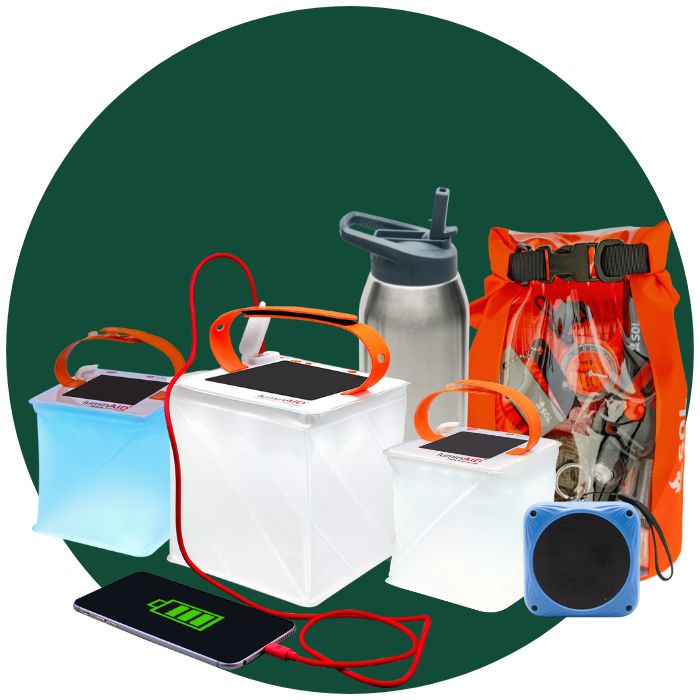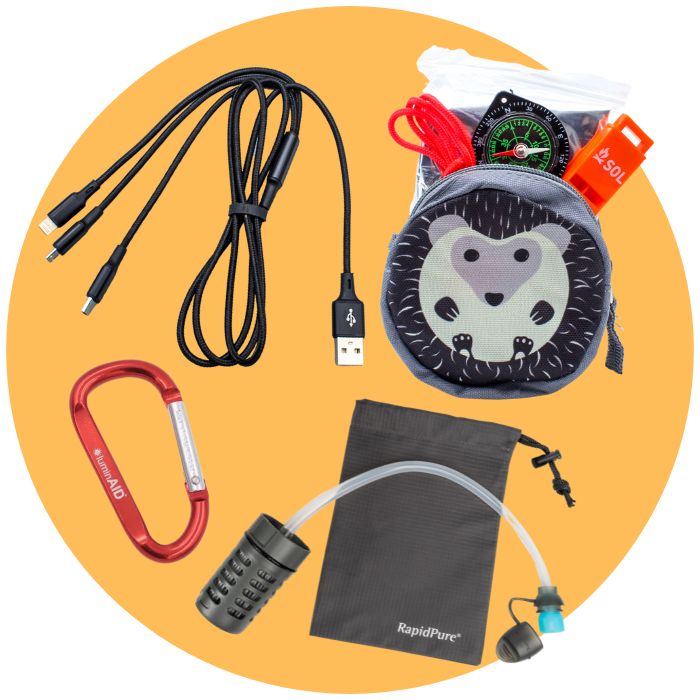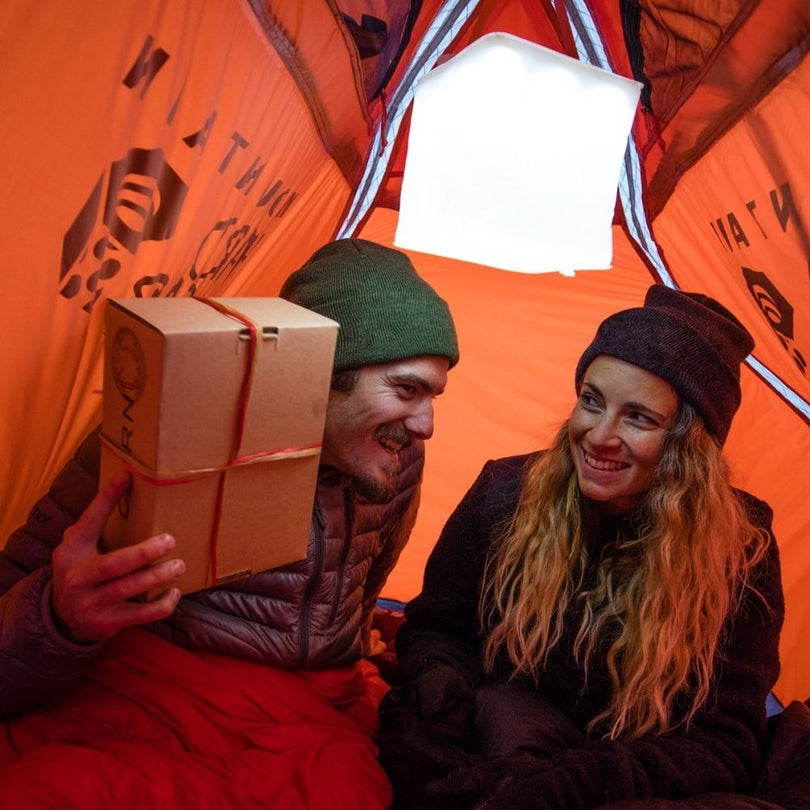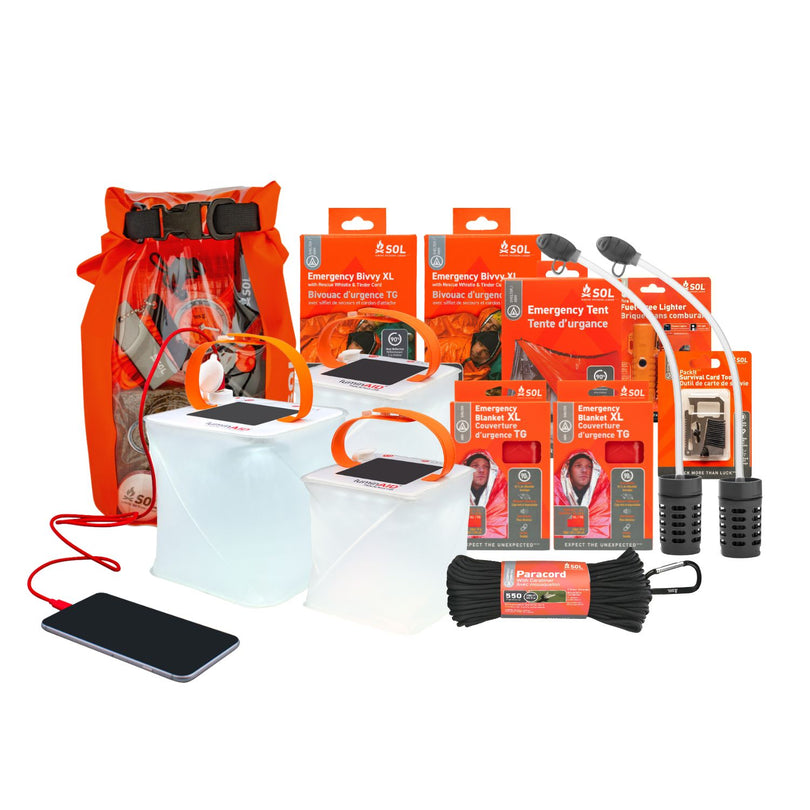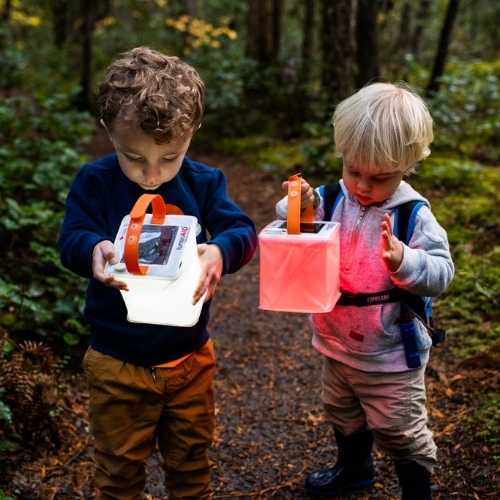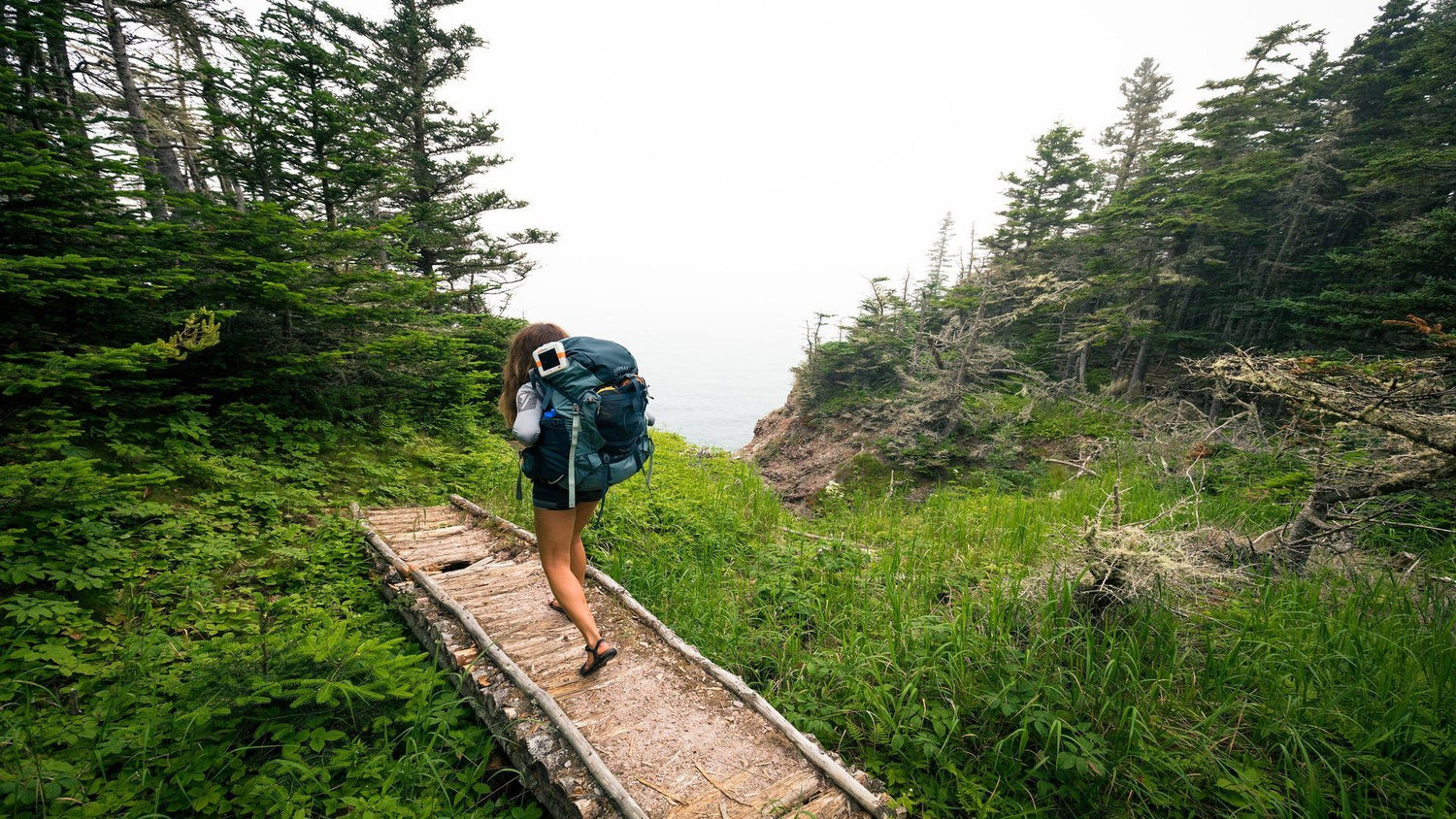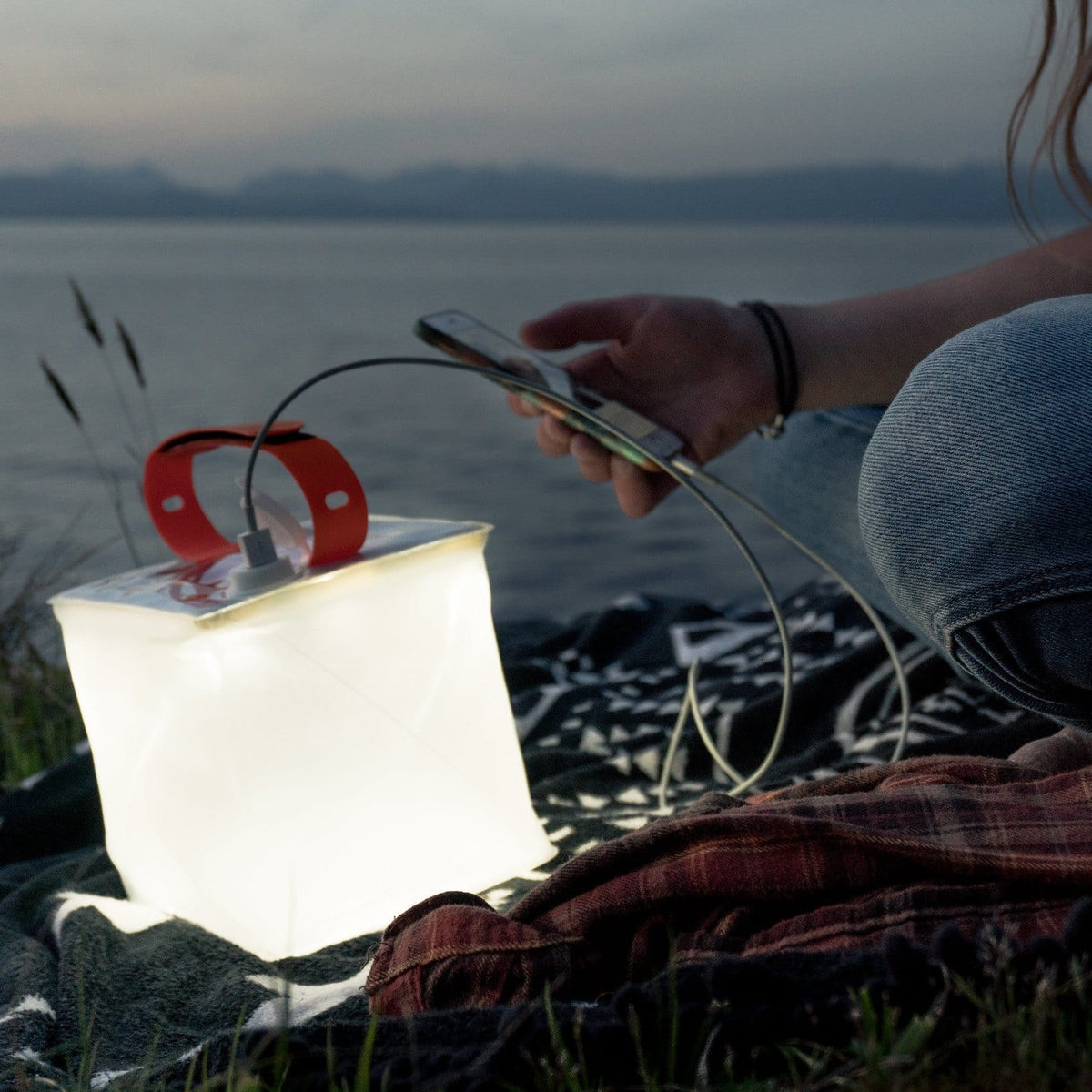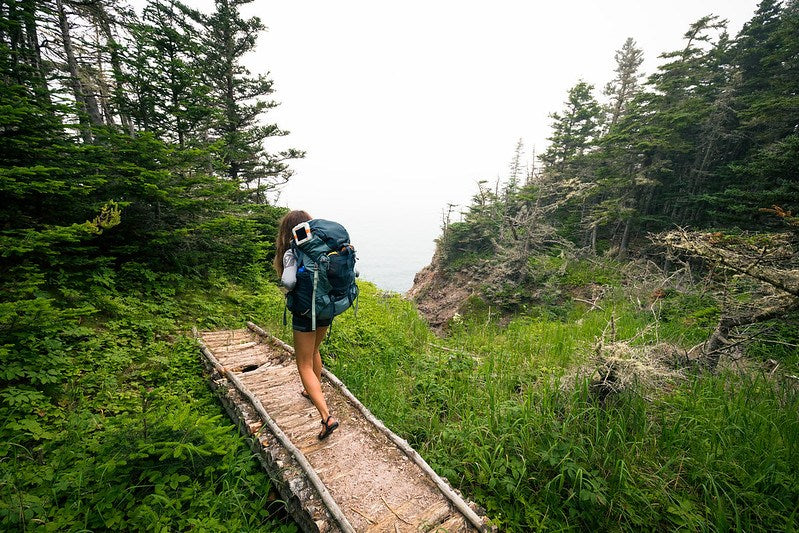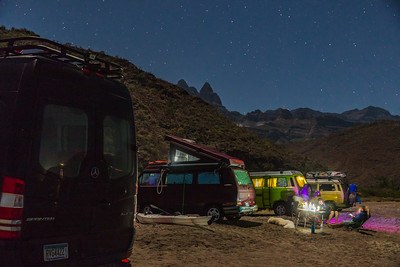Welcome, fellow camping enthusiasts! If you're ready to embark on an unforgettable outdoor experience but find yourself torn between different activities, fret not! In this article, we'll dive into the exciting world of outdoor adventures and compare various options like backpacking, camping, hiking, mountaineering, trekking, and even hammock camping. By the end, you'll have a clear understanding of the key differences, pros and cons, and be able to determine the perfect activity that aligns with your interests and preferences.
Experience the Outdoors
The great outdoors offers a myriad of experiences, each with its unique appeal. Whether you're seeking tranquility, thrilling challenges, or a chance to connect with nature, there's an adventure waiting for you. Let's explore how these activities differ in terms of preparation, effort, and intensity, so you can choose the one that resonates with your soul.
Backpacking vs Camping
Backpacking and camping are two popular outdoor pursuits, each with its distinct characteristics. Backpacking involves carrying your essentials on your back, venturing into the wilderness, and embracing the freedom of exploration. On the other hand, camping typically involves setting up a base camp in established campgrounds, allowing for a more comfortable and leisurely experience. Backpacking requires lightweight gear and emphasizes self-sufficiency and strategic packing, while camping offers a wider array of amenities. However, it's important to note that backpacking often entails camping, as spending the night in nature is part of the adventure.
Camping Tent vs Backpacking Tent
When it comes to tents, choosing the right one can make or break your outdoor experience. Camping tents are designed for larger groups, offering spaciousness and comfort. On the other hand, backpacking tents prioritize portability, durability, and weather resistance, making them ideal for solo or small-group adventures. While camping tents provide ample space for relaxation and socializing, backpacking tents excel in their lightweight design and quick setup, allowing you to quickly immerse yourself in the wilderness.

What is Car Camping?
For those who crave a blend of outdoor adventure and convenience, car camping is a fantastic option. Car camping involves driving to a designated campsite and setting up your gear near your vehicle. It offers the freedom to bring more equipment and supplies, ensuring a comfortable and enjoyable experience. With innovations like LuminAID’s inflatable lanterns, car camping provides the perfect balance between nature and modern amenities.
Hammock Camping vs Tent Camping
Imagine gently swaying amidst the trees, suspended in a cozy hammock, or cocooned inside a traditional tent. Hammock camping and tent camping both offer unique sleeping experiences. Hammock camping provides unparalleled comfort and versatility, allowing you to sleep off the ground, while tent camping offers a more familiar and protected shelter. Choosing between them depends on your preference for a more immersive nature experience or a conventional camping setup.
What is Day Camping?
Day hiking, a form of backpacking, is a delightful way to immerse yourself in nature without the commitment of an overnight stay. It involves exploring trails and natural wonders during the day, allowing you to revel in the beauty of your surroundings while returning to the comforts of civilization at night. Day hiking offers the flexibility to enjoy breathtaking views and invigorating physical activity, making it an excellent choice for those seeking a taste of backpacking without the need for overnight camping.
Hiking vs Backpacking
Hiking and backpacking share similarities but cater to different levels of adventure. Hiking usually involves shorter journeys on well-established trails, requiring minimal gear and preparation. Backpacking, on the other hand, takes you further into the wilderness, often traversing rugged terrain and demanding greater self-reliance. While hiking is a fantastic way to explore nature on a smaller scale, backpacking allows for deeper immersion and the thrill of extended expeditions.

Mountaineering vs Backpacking
For the daring souls who crave the ultimate outdoor challenge, mountaineering offers an adrenaline-fueled adventure. While backpacking skills lay a solid foundation, mountaineering takes you to new heights—literally. Mountaineering involves scaling mountains and conquering high-altitude peaks, often requiring technical expertise and specialized equipment. If you're up for a test of physical and mental endurance, mountaineering can be a transformative experience, building upon your skills acquired through backpacking.
What's the Point of Backpacking?
Now that we've explored various outdoor activities let's delve into the reasons why backpacking is a beloved pursuit for many adventurers. Backpacking offers an array of benefits, including enhanced physical and mental health, personal growth and challenge, connection with nature and others, adventure and exploration, and the opportunity to disconnect from the demands of modern life. While backpacking presents challenges such as physical demands, discomfort, and exposure to the elements, the rewards far outweigh the risks for those seeking an unforgettable outdoor journey.
Benefits of Backpacking
Physical and Mental Health
Backpacking is an outstanding form of exercise that provides numerous physical health benefits. It involves carrying a backpack, trekking through diverse terrain, and actively engaging with the outdoors, all of which work to strengthen your muscles, improve your cardiovascular health, and boost your endurance. But the benefits of backpacking extend beyond just improving physical health. Being immersed in nature also has profound effects on mental well-being. It can help to reduce stress, improve mood, and foster a sense of peace and tranquility.
Personal Growth and Challenge
Backpacking often pushes you beyond your comfort zone, encouraging personal growth. It instills qualities such as resilience, self-reliance, problem-solving, and adaptability. As you face and overcome challenges in the wilderness, you gain a sense of accomplishment and confidence that carries over into other aspects of your life.
Connection with Nature and Others
Backpacking offers an unparalleled opportunity to connect deeply with the natural world. As you wander along remote trails, sleep under the starlit sky, and take in the breathtaking landscapes, you gain a profound appreciation for the beauty and wonders of the environment. Moreover, backpacking often fosters connections between people. Sharing experiences and adventures in the outdoors can lead to new friendships and create lasting bonds.
Reasons to Go Backpacking
Experience Adventure and Exploration
Backpacking is a gateway to endless adventure and exploration. It allows you to uncover hidden gems, explore remote landscapes, and tread paths less traveled. Whether you're scaling rugged mountain ranges, strolling through verdant forests, or wandering along unspoiled coastlines, backpacking gives you the chance to be a true explorer, delving into the mysteries of the natural world.
Disconnecting from Modern Life
In a world where screens and constant connectivity dominate our lives, backpacking provides a much-needed escape. It gives you a chance to step away from the demands of work, social media, and daily responsibilities and immerse yourself in the simplicity and tranquility of nature. It's an opportunity to tune into the sounds of rustling leaves, the scent of pine trees, and the peaceful solitude of the wilderness.
Learning New Skills
Backpacking is a journey of continuous learning. You can acquire and master various skills, from map reading and orienteering to campfire cooking and wilderness first aid. The knowledge and abilities you gain through backpacking empower you to explore new environments, face challenges with confidence, and become a more capable and self-reliant adventurer.

Challenges of Backpacking
Physical Demands and Discomfort
Backpacking can be physically demanding and sometimes uncomfortable. It involves carrying a heavy pack, hiking long distances, and navigating uneven terrain. Additionally, you may have to deal with unpredictable weather conditions, insect bites, and not-so-comfortable sleeping arrangements. However, these challenges are part of the adventure and contribute to the sense of accomplishment and resilience that backpacking cultivates.
Risk of Injury and Illness
Engaging in outdoor activities like backpacking always carries some level of risk. Even with precautions, accidents can happen. It's not uncommon to experience sprained ankles, blisters, or other minor injuries on the trail. Being in remote locations can also limit immediate access to medical assistance. Therefore, it's crucial to plan properly, prepare thoroughly, and carry essential safety equipment like First-Aid kits to mitigate these risks.
Exposure to the Elements and Wildlife
Backpacking exposes you to the elements in a way that indoor environments don't. Extreme temperatures, heavy rain, strong winds, and intense sunlight can all pose challenges. Moreover, you may encounter wildlife, which requires a certain level of knowledge and respect to ensure safe interactions. Despite these challenges, most backpackers agree that the rewards of experiencing nature in its most unfiltered form far outweigh the difficulties. It's all about being prepared, respectful, and adaptable in the face of the ever-changing great outdoors.
Conclusion
The world of outdoor adventures is vast and diverse, catering to every camper's preferences and desires. Backpacking is more than just camping. It's an adventure that pushes you out of your comfort zone and puts you face-to-face with nature. It's worth every ounce of sweat and every steep trail you hike. When you reach that peak or find that perfect campsite by a babbling brook, you'll realize why backpacking beats traditional camping. It’s the challenge that makes it exciting, and it's overcoming that challenge that makes it rewarding. Sure, it might be a bit more work, but the sense of accomplishment and the unforgettable views are worth it.
Whether you opt for the self-sufficient allure of backpacking, the convenience of car camping, or the thrill of mountaineering, each experience offers its unique blend of excitement and serenity. Embrace the opportunity to connect with nature, challenge yourself, and explore the great outdoors. So, dear camping enthusiasts, choose your adventure wisely, as it will be an experience that leaves an unforgettable mark on your soul. Happy exploring!

